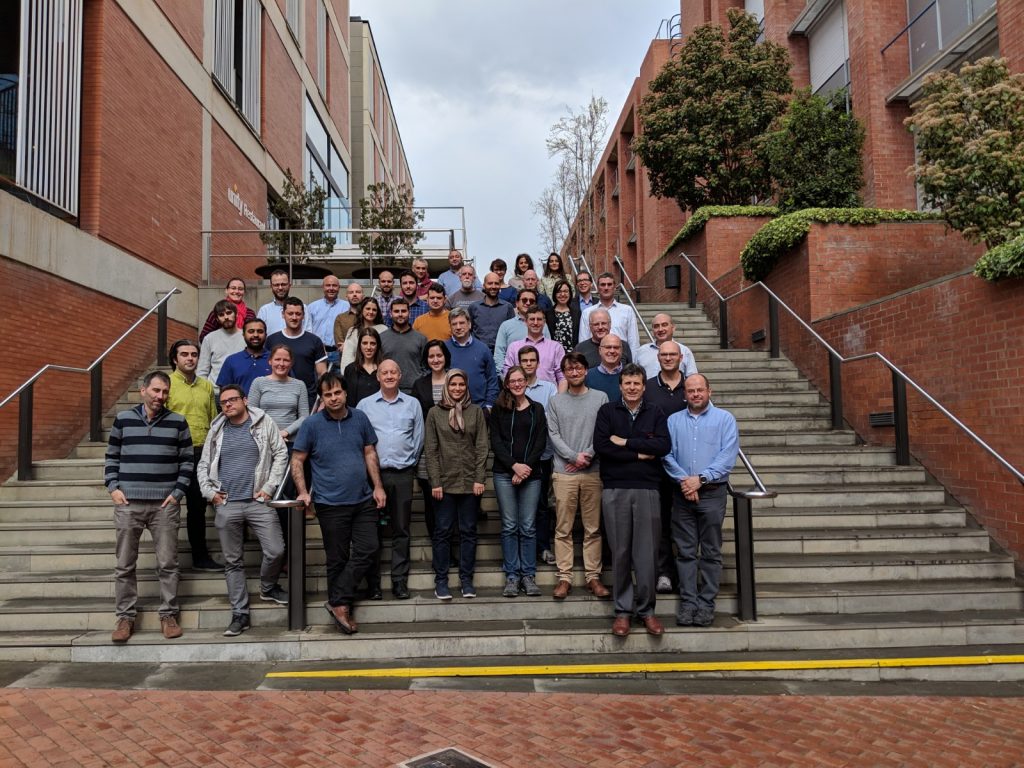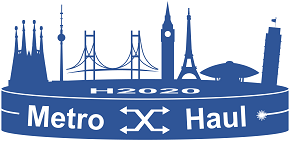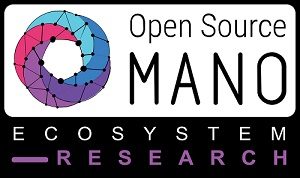Metro-Haul Project Refines the Details of Its Demonstrations that Will Demonstrate the Value of SDN Control of Flexible Metro Networks in Support of 5G Services

APril 8th, 2019 – Fifth Plenary Meeting of EU-Funded Project
Hosted by Universitat Politècnica de Catalunya in Barcelona
Barcelona, Catalonia, Spain, 8 April 2019 – At the end of the sixth quarter of the three-year project, the Metro-Haul consortium representing 21 separate companies and academic institutions, met to take stock and plan how to convert their architecture, requirements, and research into practical demonstrations of technology and use cases. The meeting was hosted by Universitat Politècnica de Catalunya (UPC) at its campus in Barcelona.
Metro-Haul is a Horizon 2020 European Union research and innovation programme that is working to design and build a smart optical metro infrastructure able to support traffic originating from heterogeneous 5G access networks, addressing the anticipated capacity increase and its specific characteristics, e.g., mobility, low latency, low jitter etc. This infrastructure will also support a wide variety of services and use cases with special emphasis on services from various industries vertical to the ICT.
“UPC is a leader in research and development for networking, and is playing an important part in the Metro-Haul project,” said Prof. Luis Velasco. “We are pleased to host this meeting and see so many people having energetic debates about the networks that will support so many critical services in the 5G world.”
Prof. Velasco is heading up UPC’s contribution to Metro-Haul and convened and hosted the meeting. “The future of the Internet experience for users is dependent on the successful roll-out of 5G services and networks,” he said. “Many future applications from enhanced road safety to automated manufacturing systems will rely on reliable, high-bandwidth, low-latency wireless networks.”

Metro-Haul members in Barcelona attending the fifth plenary
Prof. Velasco emphasised the importance of the Metro-Haul project plenary meeting: “We are currently at the stage of planning some advanced SDN-based demonstrations using optical hardware from multiple vendors, so this face-to-face meeting has enabled us to work out how different components will be interfaced do build credible proof-of-concept networks for real-world use cases. Having these conversations on a phone call would have not have allowed us to achieve the required progress at this critical point in the project.”
“Metro-Haul is currently over-achieving with a truly remarkable amount of dissemination from the project so far,” said Albert Rafel from British Telecom, the Metro-Haul lead partner. “Our challenge for the next phase is to show how the application of flexible optical technologies in the metro network can be combined with software control to deliver quantifiable benefits in support of emerging 5G applications. Face-to-face meetings like this one are very important for the 21 partners from industry and academia to have intense discussions to advance our work. We are very grateful to UPC for providing a venue for our debates.”
“Metro-Haul is in an unusual position because the project is not working directly on 5G technology or networking,” Albert added. “However, disaggregating the optical metro network should enable an intelligent and flexible infrastructure to underlay the wide variety of 5G applications and use cases. Coordinating our work with the 5G-PPP initiative is very important to our success and relevance.”
To download a PDF copy of this press release click here.
About Metro-Haul
Launched in mid-2017, the Metro-Haul Project receives funding (G.A. 761727) from the Horizon 2020 EU research and innovation program. The aim of the €7.7 million project is to design and build a smart optical metro infrastructure able to support traffic originating from heterogeneous 5G access networks, addressing the anticipated capacity increase and its specific characteristics, including mobility, low latency, and low jitter. This infrastructure will also support a wide variety of services and use cases with special emphasis on services from various industries vertical to the ICT.
- Website: https://metro-haul.eu
- Twitter: @MetroHaul
- Linked-In: https://www.linkedin.com/groups/13543287
- ResearchGate: https://www.researchgate.net/project/Metro-Haul
About Universitat Politècnica de Catalunya (UPC)
Universitat Politècnica de Catalunya · BarcelonaTech (UPC), is a public institution dedicated to higher education and research, specialised in the fields of architecture, engineering and technology. It is one of the biggest universities in Spain, with over 30.155 students, 30 departments and 226 research groups (academic year 2017-2018).
It is the UPC’s mission to create knowledge, innovate, develop technology and make this technology available to society. With this mission in mind, it works to drive innovation and become the preferred technology partner of companies and institutions.
The UPC is close to the people who make up the university community, to prospective students, researchers, entrepreneurs, institutions and companies. Projects focused on development cooperation, sustainability, volunteering and the promotion of scientific culture that are launched by students and teaching and administrative staff every year offer proof of this desire for proximity and passion for service, which the UPC expresses in accordance with the principles of participation, transparency and equal opportunity.
Media Contacts
Adrian Farrel, on behalf of the Metro-Haul Project: contact@metro-haul.eu
Luis Velasco, on behalf of UPC: email: lvelasco@ac.upc.edu




